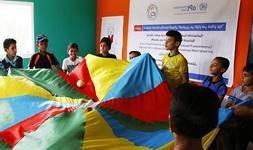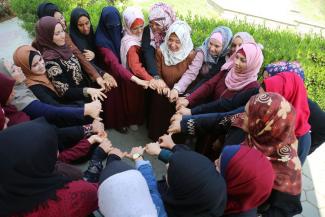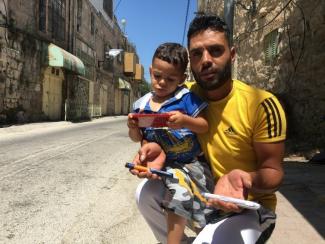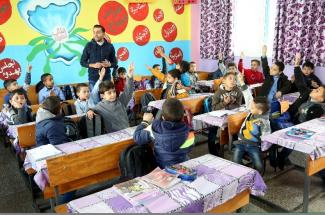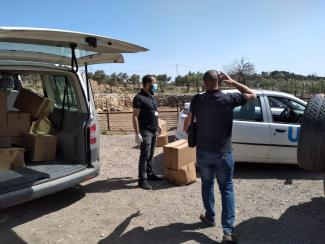The humanitarian situation in the occupied Palestinian territory (oPt) in August and September continued to be dominated by the ongoing COVID-19 pandemic. On 24 August, the Gaza Strip detected its first infection cases in the community. In response, the local authorities declared a state of emergency and enforced a lockdown, which has been gradually eased as the rate of transmission decreases. However, these restrictions have exacerbated already poor living conditions and related concerns in Gaza. Mental health is one such concern, as evidenced in the increase in suicide rates, which is the subject of one article in this Humanitarian Bulletin.
The Humanitarian Bulletin | August - September 2020
In this document
A disturbing number of suicides in recent months has highlighted a growing public health issue in the occupied Palestine territory (oPt), particularly in the Gaza Strip. Since the beginning of 2020, 24 people, including four women and five children, have reportedly taken their lives, compared to 22 reported suicides in all of 2019. These figures probably do not convey the full extent of the problem in the oPt, where suicide is shrouded in social stigma, ‘shame’ and ‘sinfulness’, as well as potential legal ramifications.
Samer Zahdeh, a 35-year-old father of four, resides in Ash Shuhada Street. This is the most restricted part of H2, the Israeli-controlled area of Hebron city, where the Israeli settlement compounds are located. His three-year-old son Adam, suffers from diabetes and requires frequent monitoring and provision of insulin. On 17 July, Adam needed his insulin, but the insulin pen they had at home was broken. Samer rushed to ‘Checkpoint 56’, which controls movement between Ash Shuhada Street and Bab az Zawieh, one of Hebron’s commercial areas in H1 (the Palestinian-controlled area of the city), in order to reach a pharmacy. “The soldiers at the checkpoint told me that I cannot leave. I tried to explain the situation to them, but they told me that it’s not their problem and that I cannot cross until the clashes that were ongoing on the other side of the checkpoint were over”.
On 26 September 2019, the cleaner at Al Bahrain Elementary Boys School in Gaza city found a suspicious object in the school backyard. The school is run by UNRWA, the United Nations Relief and Works Agency for Palestine Refugees.
Um Fuad, a 45-year-old registered Palestine refugee, lives with her husband and four children in Wadi al Khazrak in the northern Jenin governorate. Her small Bedouin hamlet is one of seven Palestinian communities that make up the Barta’a enclave, located between the Barrier and the 1949 Armistice Line (‘Green Line’), and now physically separated from the remainder of the West Bank.
